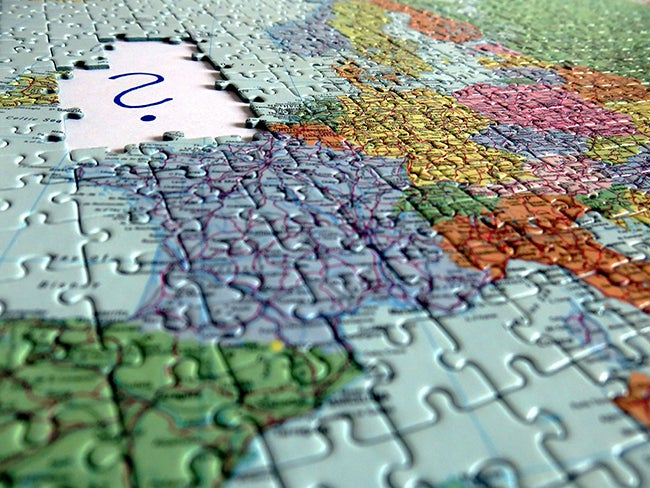Two weeks away from the French presidential election, it is almost impossible to foresee which candidate will manage to gain enough popular support to become the country’s new leader. There is one thing we know for sure though — this election is truly unprecedented, and marks a point of no return in French politics.
A new French revolution
Over the last decades, France has been facing a multidimensional crisis: a growing gap between citizens and their elites along with the steady decline of the French economy, causing high unemployment rates, especially among youths and immigrants. As a consequence of the perceived failure of its model, France started questioning its identity. Right-wing politicians have been playing with fire, stirring up a controversy about French national identity. They made use of harsh rhetoric against minorities, which reinforced social tensions, especially within the “banlieues” (or suburbs). Lastly, repeated scandals involving high-ranking politicians and major candidates like François Fillon and Marine Le Pen created a moral vacuum and increased the general distrust towards elites and a system overwhelmingly perceived as nepotist and corrupt.
Therefore, the 2017 election is one of a kind. Indeed, new parties and new rifts have emerged. It is the first time since 1958 and the beginning of the Fifth Republic that the two candidates most likely to win the first round, the far-right candidate Le Pen and the centrist Emmanuel Macron, represent parties that advocate a renewal of political practices. Furthermore, the debates so far lacked depth, focusing on minor issues instead of addressing fundamental ones. None of the candidates seems able to offer a long-term vision and project. The traditional left-right cleavage has become obsolete, while the tensions between globalization and protectionism and even rule of order and anarchy, have arisen.
A point of no return
Less than two weeks before the first round of France’s presidential election, the political game is still completely open: 40 percent of voters declare they would like to vote for a blank ballot if it were a valid option. So, as has been the case for past general elections, abstentionists might once again become France’s largest party.
This trend results from the deep crisis France has been facing and was unable to address for the last 30 years, creating resentment among the electorate. Brice Teinturier, a well-known pollster, distinguishes the “fed up” crowd and the “f*** the system” crowd as the two most important groups within the French electorate at the moment. While the first group criticizes the political system and calls for reforms, the second one completely rejects it by not taking part in political life. In other words, fed up voters can still be engaged with, while the second group cannot.
In that regard, it is also interesting to notice the growing “Americanization” of French politics. Primary elections established themselves as the new standard for the left party and the right party, the latter having interestingly renamed itself the Republicans. Primaries have been a huge hit — more than 4 million voters took part in the Republican primaries. This new trend is paradoxical; the primaries defeat their initial purpose by reinforcing internal divisions and making the most divisive candidate the winner.
Additionally, French politicians get inspiration from their US counterparts, in particular when it comes to their communication strategy. Emmanuel Macron, in particular, has tried to copycat Barack Obama’s crowdfunding and social media outreach.
Two outsiders as main contenders
Which path is France going to take? According to the latest surveys, Le Pen and Macron are the two candidates that are about to win the first round, and they have complete opposite world views. On the one hand, Marine Le Pen promises to “put France back in order” by defending French jobs against Brussels and globalization, by allocating more funding to police and the military, and by enforcing strict control over immigration. On the other hand, Emmanuel Macron would like to “make of France a chance for all” by reforming the labor market and making it more flexible, by working at a European level towards a more federalistic union, and by investing more in education, research, and innovation.
Whether French voters choose Marine Le Pen or Emmanuel Macron, the newly elected president will embody the victory of the outsiders against the establishment and old-school politics, and will represent the beginning of a new chapter for France, and more generally for Europe. Indeed, after Brexit and the election of Donald Trump last year, political pundits and politicians in Paris, Berlin, and Brussels have followed the French election with a mixture of fear and hope. Will France go down the same path as the US and the UK, or will it be, once again, Europe’s beacon? We won’t know the answer until May 7.
Ioanna Kohler is the executive director of Institut Aspen France. She has worked in the public, private, and nonprofit sectors in France and the US, specializing in international cooperation and exchange. Amélie Reichmuth is her colleague at Aspen France.

